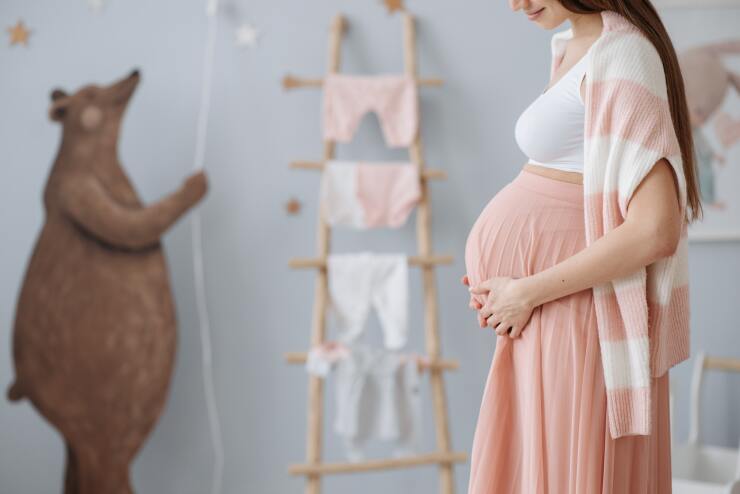While more women are making the decision to postpone having children to establish more successful, secure careers, they're still facing damaging judgment in the workplace for this personal choice.
According to the U.S. Census Bureau, 20% of women now have their first child after turning 35, known as a "geriatric pregnancy" by the medical community until just last year. Yet this term can ostracize women, and it's one that Rachael Jones, director of clinical implementation at fertility benefits provider WINFertility, found deplorable when she herself was pregnant at 36.
"All [moms] hate that term," says Jones. "It's difficult to hear and it's just not a healthy term. It's time to retire it."
Read more:
Now officially coined as "advanced maternal age" by the American College of Obstetricians and Gynecologists as of last August, Jones still feels the stigma behind the word "geriatric" lives on. Women who have a child later in life not only see higher health risks and more barriers to a viable pregnancy, but face little support from their employers or colleagues, says Jones.
Jones knows the path to motherhood is not easy for older women, but she believes pregnancies like hers will only become more common, especially as the increased cost of living for homes, schools or
"The timeline has changed because people are pushing off having a child," says Jones. "You're never going to have enough money, but at least from my perspective, I wanted to secure a career, a home and certain assets before having a baby. And all that really lends itself to being later in life."
But despite more women having children after 35 than ever before, Jones notes that many managers and even some co-workers may not relate.
Read more:
"By the time they are 35, they may have children in high school," says Jones. "They aren't worried about picking up their kid from daycare because they have a high fever."
This can trickle down to the benefits that older moms-to-be might benefit from: from egg-freezing and embryo genetic testing to day-to-day flexibility during work hours, women who choose to start a family in their 30s need
"I was lucky that me and my partner both had fertility benefits," she says. "It was immensely helpful in taking stress off the process, because [treatment] can get quite expensive if you have to pay out of pocket."
Read more:
Jones was 34 when she first started trying to get pregnant, but due to uterine and fibroid issues, she had to delay undergoing in vitro fertilization using her frozen eggs. Jones felt fortunate that through WINFertility benefits, she had access to a 24/7 fertility-experienced nurse and could get all her questions answered without waiting for an in-person appointment. As a nurse for 11 years herself, Jones knows it's not easy to get to every patient's question during a single appointment.
Not to mention, IVF costs can range from $15,000 to $30,000. Jones knows she's lucky to feel like she wasn't alone in her medical journey, but employers shouldn't limit their support with
"If you're doing an IVF cycle for example, that's two weeks of medication before you're ready for egg retrieval," says Jones. "You may have to see the doctor two or three times during the first week of treatment, then maybe another three to four times the second week."
Read more:
This means managers should encourage flexibility and have open dialogues about the worker's needs that week or even month. And to truly be a workplace that supports families, Jones advises employers to offer paid parental leave for moms and dads. Benefits, flexibility and leave policies automatically communicate a company's stance on working parents, says Jones.
"As a working mom over 35, you really cherish the time with your child," she says. "Employers should consider someone in my position."






